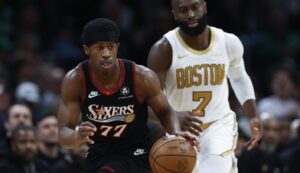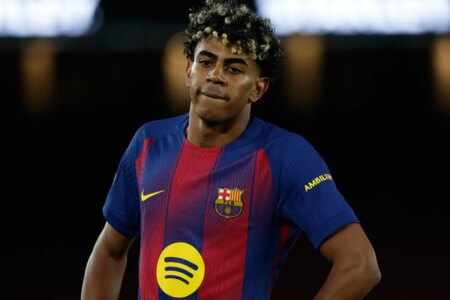Until a few years ago, the presence of scouts or directors at training sessions and matches, spread throughout Brazil, was considered normal among clubs, interested in looking for new talent far from the capitals. However, in recent years, this has changed and is exclusively related to the emergence of artificial intelligence, which is able to directly help in the discovery of good players.
One of these examples is directly linked to CUJU, a program that uses technology to identify athletes with the potential to build a professional career. In practice, the user registers on the platform and follows the video instructions to be recognised by the AI, obtaining a score after completing the exercise. There is a regional ranking that scouts have access to and can recommend these football projects to professional clubs.
“The idea is to open up the projections, carry out an initial phase virtually and then nominate these athletes in some clubs,” explains Roger Wittmann, CEO of Rogon, a technology company in Germany that operates the entire CUJU process.
With a presence in German football, he has been involved with Hoffenheim, as well as being the coach of players who have already played in the World Cup with the national team, such as Luiz Gustavo and Roberto Firmino.
This Sunday (23), in Santa Catarina, the CUJU project, called ‘A Jornada’, kicks off, which shows the process of choosing the first AI player in history. The test will be divided into four stages.
In the first stage, the app invited the best AI-ranked players to an in-person test, where they are evaluated in other aspects. Julio Cesar, a goalkeeper who played in three World Cups with the Brazilian national team, will be one of the judges. In addition, the competition will be supported by Banheiristas, one of the largest football channels in the world on YouTube.
Another platform that also uses facial recognition to help clubs is Footbao, which has more than 100,000 young people registered and combines artificial intelligence with human knowledge. In addition to the filtering process through analysts, the company also promotes tournaments between schools, producing videos for later evaluation.
The use of AI in European football
This practice is also quite common in Europe. One such platform is London-based aiScout, which allows amateur and renowned athletes to participate in virtual trials for professional clubs, sending in footage of themselves performing a series of training sessions. Performances are automatically evaluated by artificial intelligence and clubs can access them, allowing scouts to sift through the scores for talent.
Two Premier League clubs, for example, use this application: Chelsea and Burnley. According to Richard Felton-Thomas, director of operations at aiScout, in an interview with CNN International, the technology is designed to make better use of scouts’ time. “We say to them (the scouts), ‘Go to this place today because there are three players in that game who are really exceeding Chelsea’s standard. This will be the best use of your time,” he said. The same platform also has a partnership with Major League Soccer (MLS).
In 2024, IBM and Sevilla FC announced Scout Advisor, a generative artificial intelligence tool, so that its scouting department has access to more complete data when identifying and evaluating athletes for future signings.
Built on IBM’s enterprise-focused AI and data platform, WatsonX, Sevilla FC’s Scout Advisor has been integrated into the club’s current suite of data-intensive proprietary applications.
“Our team of scouts and analysts is committed to finding the best players to support the success of our team and has worked tirelessly to build an impressive database of player reports, and now, with the support of IBM, we can use this asset to its full potential,” said Jose Maria del Nido Carrasco, Sevilla’s president at the time. “This gives us a significant advantage in the player recruitment process, allowing us to find the best players for our team to continue to improve performance on the pitch,” he added.
Sevilla’s scouting team has attracted worldwide attention for its track record in identifying football’s rising stars. In addition, the Spanish club is a pioneer in the development of proprietary, information-intensive applications that include player features based on a broad spectrum of quantitative data.
Read the full article here











